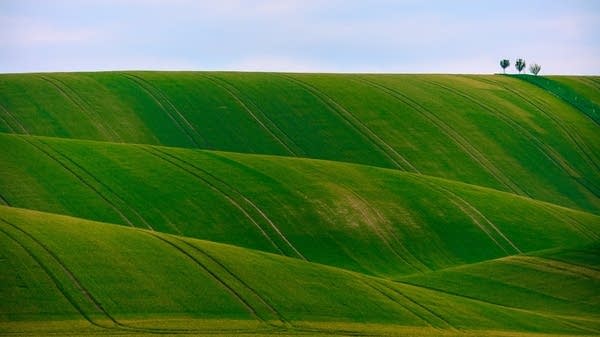I guess you could say I have a creative side. I'm a professional photographer, I play the piano, I write fiction and nonfiction books and articles, and I've even been known to write the occasional boring poem. But, like many other "creatives," I also have a Great American (Unfinished) Novel.
It seems that almost every writer has that unfinished novel in a drawer, or—more recently—in the cloud. Rob Petrie from The Dick Van Dyke Show, Anne Shirley from Green Gables, and even "Paul" from Billy Joel's "Piano Man" all struggled to complete their personal Moby Dicks while also balancing daily life. If you're a writer with an unfinished Grapes of Wrath in hiding, let me help you make the most of your writing time by offering some musical suggestions to get help set the mood.
For my "writing music," I look for a non-distracting, calming sound that essentially maintains a steady feel and theme throughout. The main goal at your writing desk should be writing; the music is just there to act as a dash of inspiration and a way to get your creative right brain engaged. For this reason, I try to avoid pieces that present major shifts in style, volume, and tempo, or those that sound overly intense. Movie soundtracks and many symphonies fall into this category, since they tend to feature dramatic crescendos that can actually be distracting while you're trying to write.
Also, keep your speakers—and your desk—calm by choosing only the relaxing movements of any given work. This might mean skipping over Holst's Jupiter and instead opting for Venus. Feeling like some Mozart? Try the second movement of Eine Kleine Nachtmusik and you'll see what I'm talking about. Like Aesop's tortoise, when it comes to writing, slow and steady wins the race. (If you're brainstorming—dreaming up ideas—then all bets are off, and you can find inspiration on YourClassical's Energy or Movies streams.)
I've found that calm piano music can also be great for novel-writing. Chopin is a good choice, but you have to watch out because he can be a little too peppy and distracting! You should have good luck if you stick with quieter choices, like Nocturne in E-flat Major Op. 9, No. 2 for the happy scenes in your novel when Romeo meets Juliet, and Nocturne in B Flat Minor Op. 9 No 1 for those sad moments when Juliet must tell Romeo she's moving to Alaska—or whatever.
Some final novel-music advice?
Grab yourself a copy of Journey by modern composer Austin Wintory. Let me hasten to say: I'm not a video gamer—and, as I mentioned before, I tend to shy away from soundtracks when writing, so it may seem odd that I recommend the soundtrack to a video game as essential novel-writing music. That said, Journey manages—as much as is musically possible—to actually tell the story of a "journey" through music (and with the aid of helpful track titles). What's better than that when plotting your novel? The album's first track ("Nascence") pulls you in with a delightful cello theme around which the rest of the album is based. With a runtime of 59 minutes, the album perfect for those times when you're "going to go work on my novel for an hour." Good stuff.
Who knows? Maybe someday we'll actually finish those novels. Until then, at least it's a great excuse to listen to music.
Daniel Johnson is a Wisconsin-based photographer and writer, and the author of several nonfiction titles and one unfinished novel. You can see his photography work (he does a lot of animals!) at foxhillphoto.com. Nocturne in E-flat Major Op. 9, No. 2 is his all-time favorite piece of classical music.
Love the music?
Show your support by making a gift to YourClassical.
Each day, we’re here for you with thoughtful streams that set the tone for your day – not to mention the stories and programs that inspire you to new discovery and help you explore the music you love.
YourClassical is available for free, because we are listener-supported public media. Take a moment to make your gift today.












